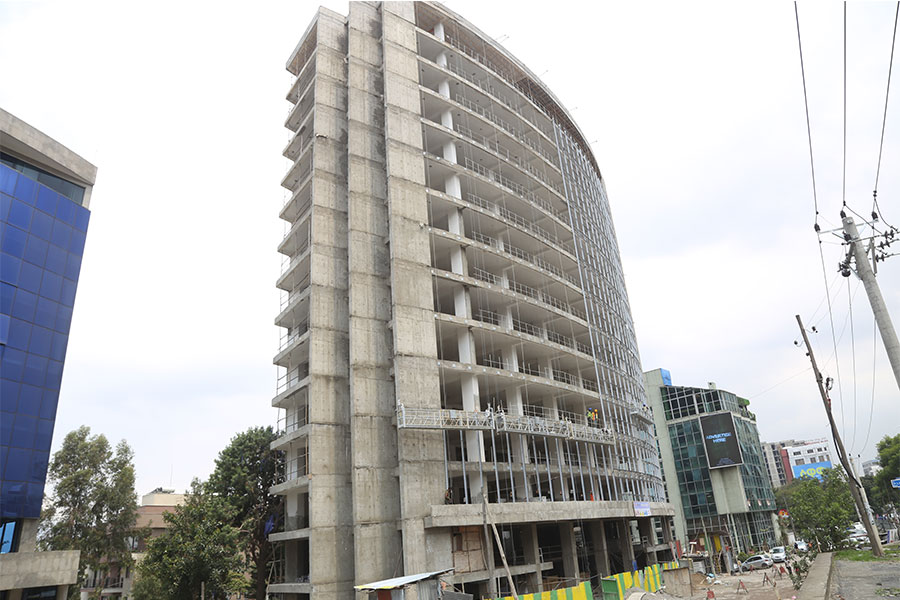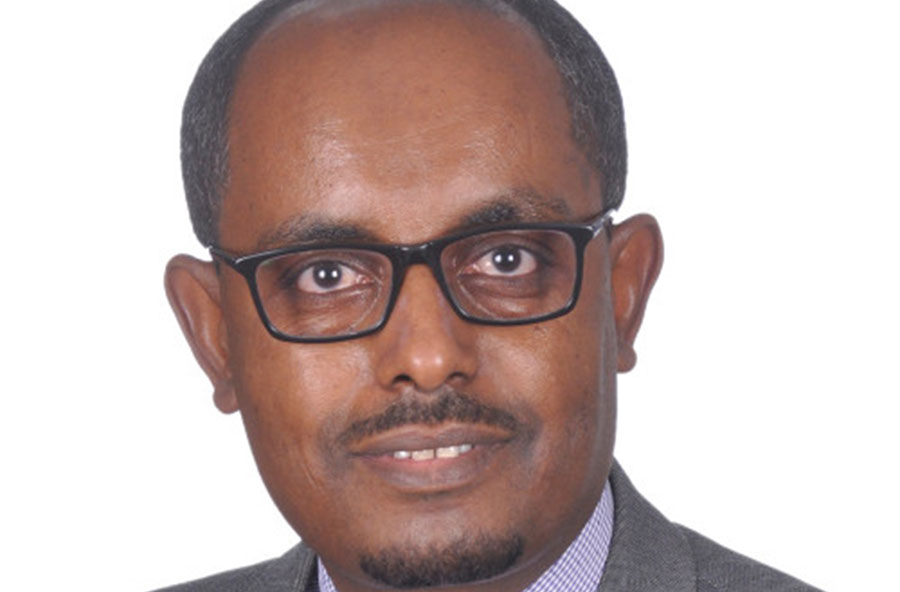
Fortune News | May 29,2021
Jul 1 , 2023
By Shewangezaw Seyoum
Ethiopia’s new economic reform agenda is being crafted in the eye of a perfect storm. The process is fraught with challenges from the past, present, and the looming future. Only a meticulously crafted, all-encompassing reform that adequately addresses these concerns may yield sought-after stability and economic revival. Thus, policymakers must seize this as an opportunity to generate robust, inclusive, and responsive economic reforms that not only chart a pathway to recovery but also put Ethiopia firmly on the road to long-term, sustainable growth.
On the threshold of a significant juncture in policy-making, officials of the Ministry of Finance had convened with donors tabling the second edition of the home-grown economic reform agenda. The consultations followed an initial deliberation by parliamentarians, denoting a forward stride on the road to legalisation. Intriguingly, this occurs amid the glaring shortcomings of the initial round and the gathering momentum of fresh challenges.
The forthcoming reform proposal is bullish, exhibiting signs of optimism about economic recovery, potential growth, and the restoration of macroeconomic stability. However, these lofty expectations stand in stark contrast with the realities experienced in the initial phase.
Ethiopia’s economic landscape has experienced a precipitous deceleration in GDP growth over the years. The initial economic reform agenda was initiated in response to severe macroeconomic imbalances, including runaway inflation, a dwindling foreign currency reserve, rampant unemployment, deficient social services, and an underperforming public infrastructure. Rather disconcertingly, these challenges persist today, with some evolving into more critical crises.
Particularly noteworthy is the rampant inflation, a menace that not only cripples economic performance but also threatens socio-political stability.
Recent times have seen Ethiopian private banks grappling with acute liquidity and credit management crises. This predicament has pushed many banks to fall back on short-term loans from the central bank, leveraging a standing facility window. Initially designed as a safety net for short-term liquidity challenges, this facility is now under strain, indicating its unsuitability as a long-term solution.
This financial quagmire could dishearten savers, undermining their confidence in the financial system and discouraging investment. It could deny investors the predictability and financing required for productive ventures while hindering consumers from efficiently utilising the financial system. From a regulatory standpoint, the formulation of monetary policy and the central bank’s primary mandate must remain unfettered by perennial worries over the banks’ health.
Adding to Ethiopia’s economic woes are emerging challenges. Of particular concern are the issues encircling the integrity of the financial system and fiscal sustainability at the sub-state level. There is a growing concern over the financial sustainability of regional states, with some unable to meet obligations such as paying salaries for members of the civil service. In extreme cases, arrears have accrued over several months, pushing these states to seek help from the Ministry of Finance, consequently raising macro-financial stability issues.
To compound these issues, the country’s unstable political climate poses a significant barrier to the increased production and investment desperately needed to stimulate the economy. The shifting sand of identity among the populace, from a national to an ethnic-centric, is fuelling political instability, sowing division, and igniting conflicts.
Internationally, geopolitical and geoeconomic rivalries, particularly those between the United States (US) and the Sino-Russian bloc in the Horn of Africa, have the potential to destabilise Ethiopia’s economic recovery efforts.
In the face of such multifaceted challenges, the economic reform agenda must exhibit extraordinary adaptability and foresight to stand a chance at success.
In the coming weeks, as the agenda will be presented to diverse stakeholders, the officials tasked to promote it should transition from a mode of unidirectional communications to a more open and receptive approach. By adopting an attitude of listening and incorporating ideas from participants, rather than merely disseminating preconceived plans, the reform agenda can become more nuanced and tailored. This approach will likely increase its chances of approval when it reaches the Parliament floor for the second time and, subsequently, donors for possible funding.
PUBLISHED ON
Jul 01,2023 [ VOL
24 , NO
1209]


Fortune News | May 29,2021

Viewpoints | Sep 08,2024

Radar | Apr 30,2022

Radar | Dec 19,2020

Fortune News | Jul 20,2019

Commentaries | Feb 25,2023

Fortune News | Feb 26,2022

Viewpoints | Mar 18,2023

Fortune News | Dec 05,2018

Radar | Jun 22,2019

My Opinion | 131974 Views | Aug 14,2021

My Opinion | 128363 Views | Aug 21,2021

My Opinion | 126301 Views | Sep 10,2021

My Opinion | 123917 Views | Aug 07,2021

Dec 22 , 2024 . By TIZITA SHEWAFERAW
Charged with transforming colossal state-owned enterprises into modern and competitiv...

Aug 18 , 2024 . By AKSAH ITALO
Although predictable Yonas Zerihun's job in the ride-hailing service is not immune to...

Jul 28 , 2024 . By TIZITA SHEWAFERAW
Unhabitual, perhaps too many, Samuel Gebreyohannes, 38, used to occasionally enjoy a couple of beers at breakfast. However, he recently swit...

Jul 13 , 2024 . By AKSAH ITALO
Investors who rely on tractors, trucks, and field vehicles for commuting, transporting commodities, and f...

Jul 5 , 2025
Six years ago, Ethiopia was the darling of international liberal commentators. A year...

Jun 28 , 2025
Meseret Damtie, the assertive auditor general, has never been shy about naming names...

Jun 21 , 2025
A well-worn adage says, “Budget is not destiny, but it is direction.” Examining t...

Jun 14 , 2025
Yet again, the Horn of Africa is bracing for trouble. A region already frayed by wars...

Jul 6 , 2025 . By BEZAWIT HULUAGER
The federal legislature gave Prime Minister Abiy Ahmed (PhD) what he wanted: a 1.9 tr...

Jul 6 , 2025 . By YITBAREK GETACHEW
In a city rising skyward at breakneck speed, a reckoning has arrived. Authorities in...

Jul 6 , 2025 . By NAHOM AYELE
A landmark directive from the Ministry of Finance signals a paradigm shift in the cou...

Jul 6 , 2025 . By NAHOM AYELE
Awash Bank has announced plans to establish a dedicated investment banking subsidiary...